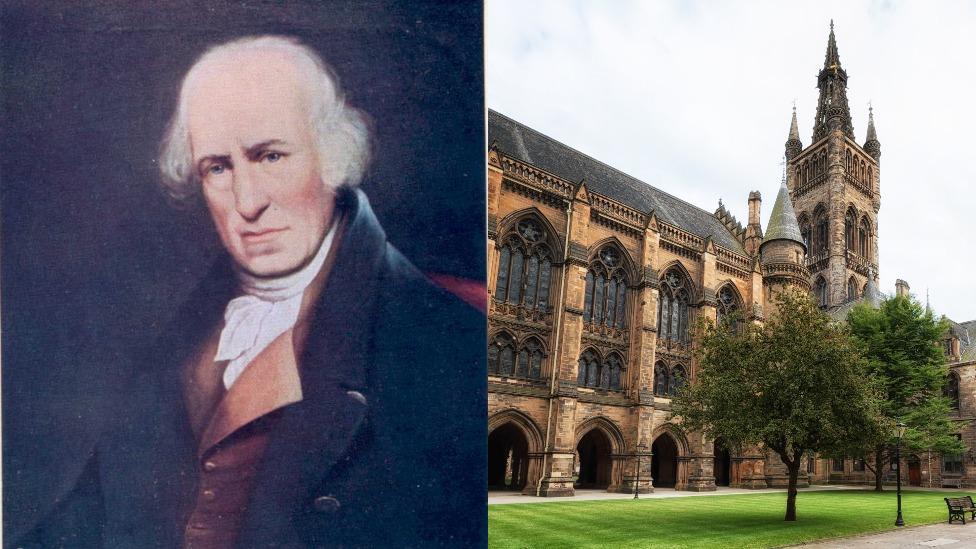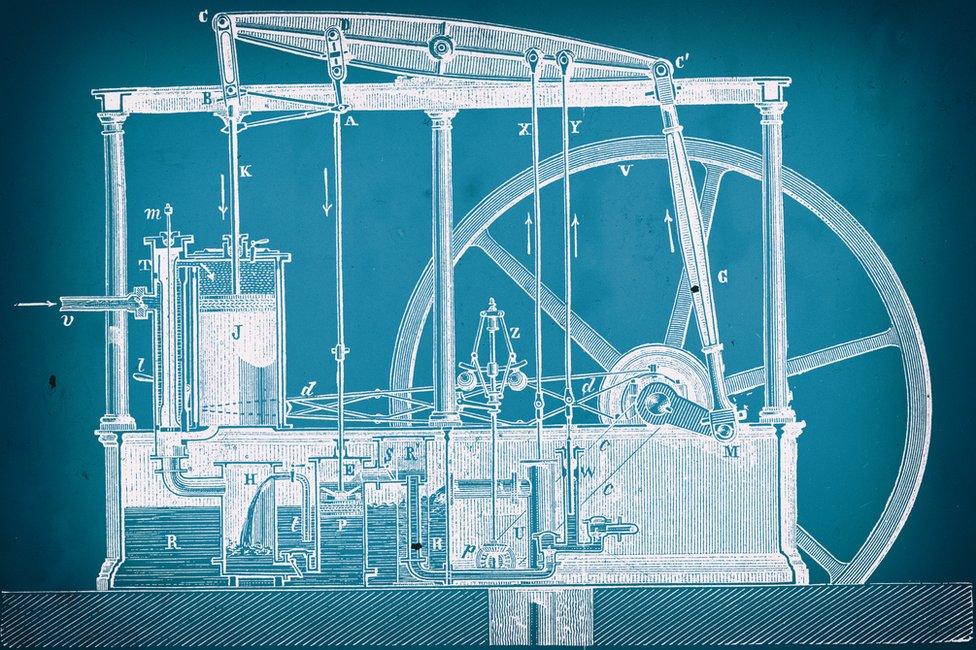Glasgow University renames engineering school after James Watt
- Published

Glasgow University has renamed its engineering school after a Scots inventor credited with helping to kick-start the industrial revolution.
The move is part of a year-long celebration of James Watt's life and work, marking the 200th anniversary of his death.
Watt was renowned for his contribution to steam engine technology.
He worked as an instrument-maker at the university when he made improvements to a Newcomen steam engine in 1765.
Greenock-born Watt added a separate condenser to the engine, making it vastly more efficient.
"The importance of Watt's contribution to the field of engineering can't really be overstated, and we're very proud to be associated with the improvements he made to the Newcomen steam engine," said the head of the James Watt School of Engineering, Professor David Cumming.
"The world has come a long way in 200 years, and much of that distance was covered using technology derived from the principles he established.
"It seemed fitting to mark the start of the third century of a post-Watt world with the renaming of the school."


James Watt also patented the double-acting steam engine
Who was James Watt?
Watt was a Scottish inventor and mechanical engineer, renowned for his improvements in steam engine technology.
James Watt was born in Greenock on 18 January 1736.
Watt initially worked as a maker of mathematical instruments, but soon became interested in steam engines.
The first working steam engine had been patented in 1698 and by the time of Watt's birth, Newcomen engines were pumping water from mines all over the country.
In around 1764, Watt was given a model Newcomen engine to repair. He realised that it was hopelessly inefficient and began to work to improve the design. He designed a separate condensing chamber for the steam engine that prevented enormous losses of steam. His first patent in 1769 covered this device and other improvements on Newcomen's engine.
Watt and his partner Matthew Boulton's engineering firm became the most important in the country, meeting considerable demand.
By 1790, Watt was a wealthy man and in 1800 he retired and devoted himself entirely to research work. He patented several other important inventions including the rotary engine, the double-action engine and the steam indicator, which records the steam pressure inside the engine.
Watt died on 19 August 1819. A unit of measurement of electrical and mechanical power - the watt - is named in his honour.